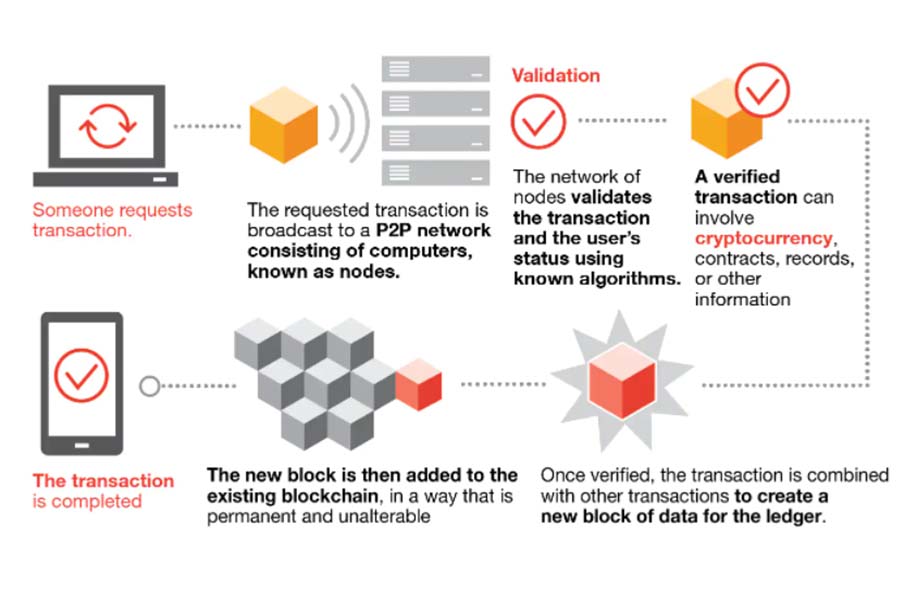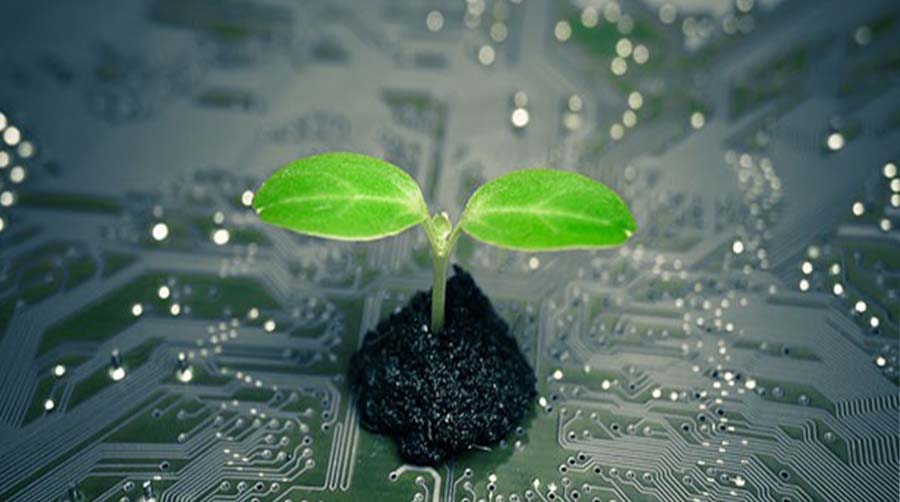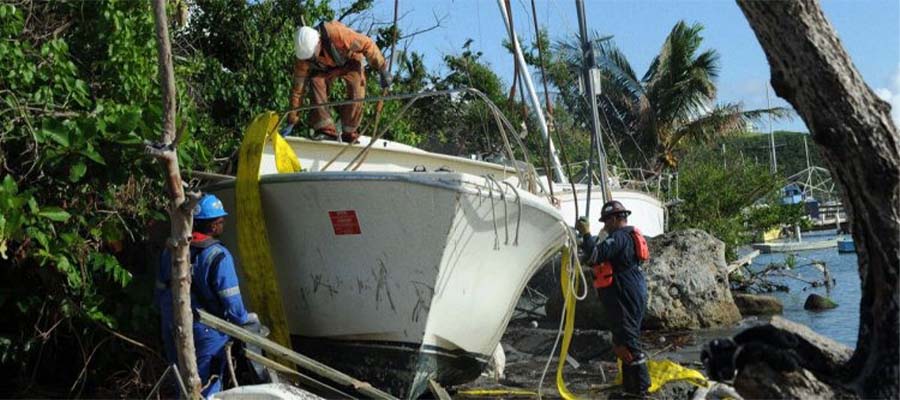Digitization has revolutionized how islanders communicate, innovate, and exchange information. Blockchain and cryptocurrency are gaining increasing traction and attention among island governments for their potential to transform the functioning of a wide range of industries. These innovative technologies can increase the transparency and traceability of goods, data, and financial assets, facilitate market access, improve the efficiency of transactions and processes, and can contribute to achieving several Sustainable Development Goals (SDGs).
What are blockchains and cryptocurrencies?
Blockchain technology and cryptocurrency are relatively new in the realm of international economic development, trade, and governance. Before we can understand how these technologies can improve the lives of islanders, we need to understand what blockchain and cryptocurrency are and how they function.
Blockchain Technologies
A blockchain is a decentralized ledger of all transactions across a peer-to-peer network. Blockchain records information in a way that makes it difficult or impossible to change, hack or cheat the system. Participants using this technology can confirm transactions without a need for a central or third-party clearing authority. In very simple terms, it could be thought of as an open-access spreadsheet of all transactions that could be viewed and verified by anybody.

Cryptocurrency
Cryptocurrency is a medium of exchange, created and stored electronically in the blockchain, that is digital, encrypted and decentralized. This digital currency can circulate without the need for a central monetary authority, such as a government or bank, and instead are created by using cryptographic techniques (practice of secure communications) that enable users to buy, sell, or trade cryptocurrency securely. Bitcoin and Ethereum are probably the best known examples of cryptocurrencies worldwide.

Benefits of using blockchain technology and cryptocurrencies on Islands
Blockchain and cryptocurrency are believed by many as being critical components in accelerating the attainment of the Sustainable Development Goals (SDGs), diversifying island economies, and developing resilience by increasing the transparency of information and processes; improving accessibility of sending and receiving money from abroad; and the ability to use these technologies in disaster relief and emergency management practices.
Increased transparency of transactions and supply chains
The primary advantage of blockchain technology is its ability to resolve trust issues without a central third party. Blockchain increases the transparency of transactions through its decentralized structure, meaning that no single and exclusive entity is in charge of the system. Rather, a blockchain consists of peers who are responsible for carrying out transactions and validating them, and every peer in the blockchain is free to choose if they want to participate in the validation process. Such a level of transparency in transactions can positively impact islands through factors such as accountable tracking of carbon emission data, improved efficiency of supply chains, and could encourage more green investments.
A study published in Sustainability reported that blockchain technology can enhance supply chain integration and reduce carbon emissions through increased transparency, agility, and flexibility between stakeholders within a supply chain. Moreover, the blockchain could be adopted as an operational tool to track carbon footprint, streamline processes and improve the efficiency of carbon management to minimize the overall emissions. This reduction in carbon emissions and improved supply chain integration is essential in helping achieve SDGs such as Climate Action and Responsible Consumption and Production.

Blockchain could also spark increases in green investments, which are among the key components of climate financing for Small Island Developing States (SIDS). By improving efficiency in the distribution and reporting on the use and impact of green bond proceeds, investors could become more inclined to fund projects they may have previously not considered due to a lack of transparency between stakeholders or reliable data needed in decision-making processes.
Cheaper and more effective transactions for islanders
Many small island nations are turning to cryptocurrency as a way to make sending and receiving money from abroad more efficient and cost-effective. SIDS especially find it increasingly difficult to send and receive money internationally due to their heavy reliance on international banks and the associated fees to make transactions. In Tonga, for example, 40 percent of national GDP comes from people abroad sending money back to family (remittances), and using cryptocurrency instead of traditional banks could make those remittances faster and cheaper. Additionally, the use of cryptocurrency could be revolutionary in serving under-banked populations, which the Asian Development Bank ranks Pacific Island Countries (PICs) as some of the most under-banked nations in the world. Initiatives such as Oxfam’s UnBlocked Cash Project are capitalizing on the fact that using cryptocurrency does not require a bank account. The project has provided thousands of unbanked islanders in the pacific with tap-and-pay cards to purchase food and other essential items, helping achieve several SDGs, including Reduced Inequalities, No Poverty, and Zero Hunger.
New tool for developing resiliency and emergency management practices

Blockchain technologies could be an effective tool in developing resilience and emergency management practices on islands in response to a variety of situations, including natural disasters, humanitarian crises, and global pandemics. By adopting blockchain as a universal system across organizations, governments, and civil society, parties involved in the system could coordinate resources more efficiently in emergencies and ensure that resources are allocated to the areas they are most needed. It would also increase the transparency of aid funding and donations, keeping an immutable record accessible to everyone, and stopping the risk of resource diversion or corruption. This could strengthen global partnerships and promote stronger institutions that are better equipped to help island communities manage crises in the future.
Conclusion
Blockchain and cryptocurrency can revolutionize island economies, governance, and society by fostering positive change across a variety of sectors and making accessibility to services and information more equitable. On top of helping to achieve several SDGs, these digital innovations can help islands to become better connected, resilient, and able to adapt to future challenges.
Island Innovation recognizes the immense potential of blockchain and cryptocurrency, and that is why we have dedicated one of our six content tracks to blockchain and cryptocurrency at this year’s Island Finance Forum! This free virtual event brings together senior financiers, development partners and regulators to share and exchange expertise on sustainable and inclusive financial structures in island communities. Attendees will have access to a variety of interactive sessions happening between April 25th and 29th, including networking opportunities to meet and exchange ideas face to face or in small groups.



